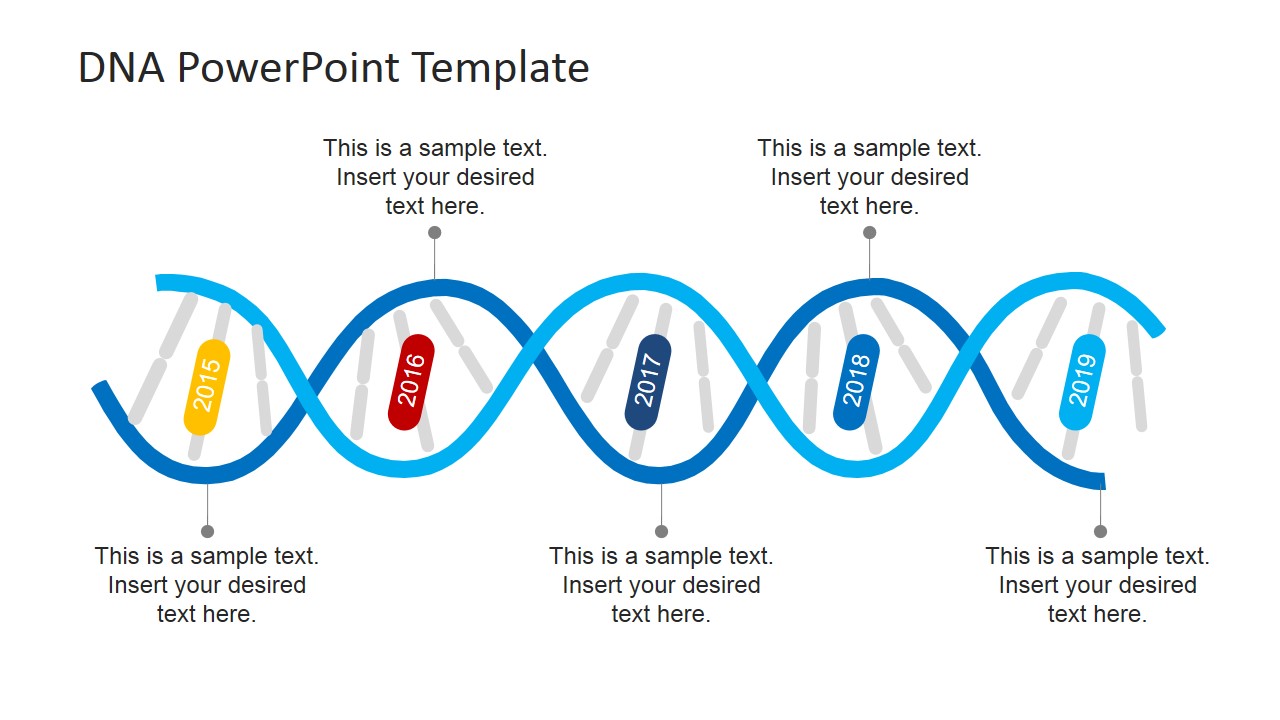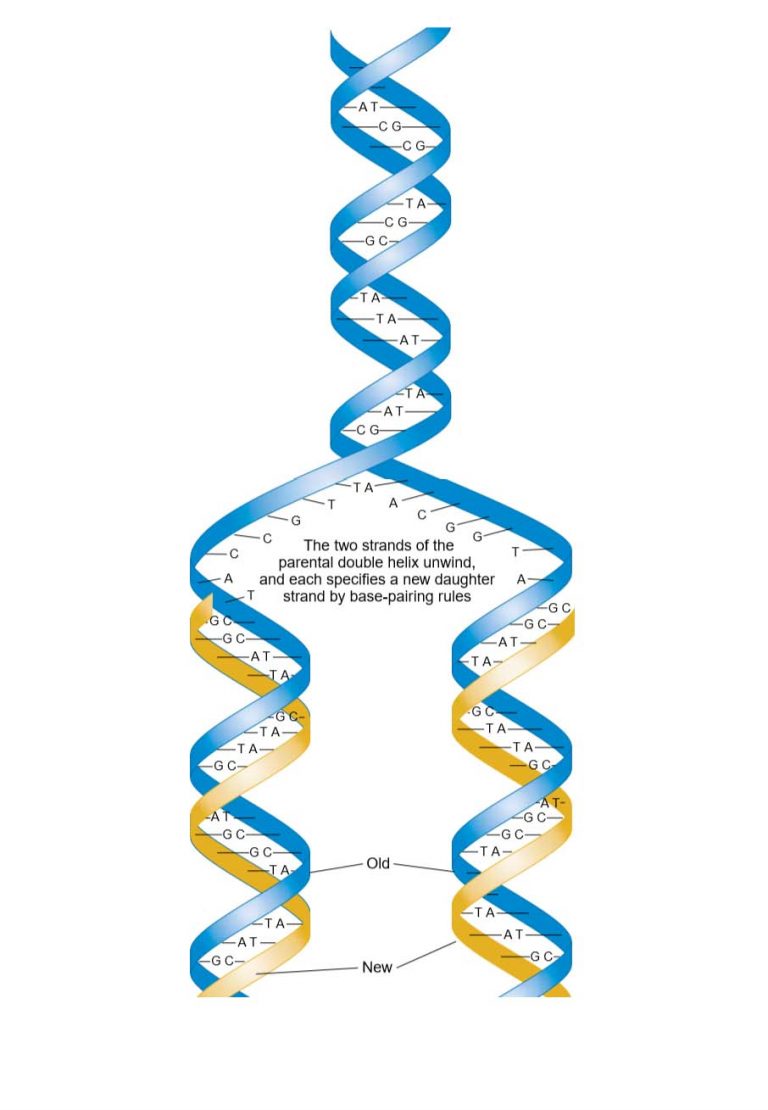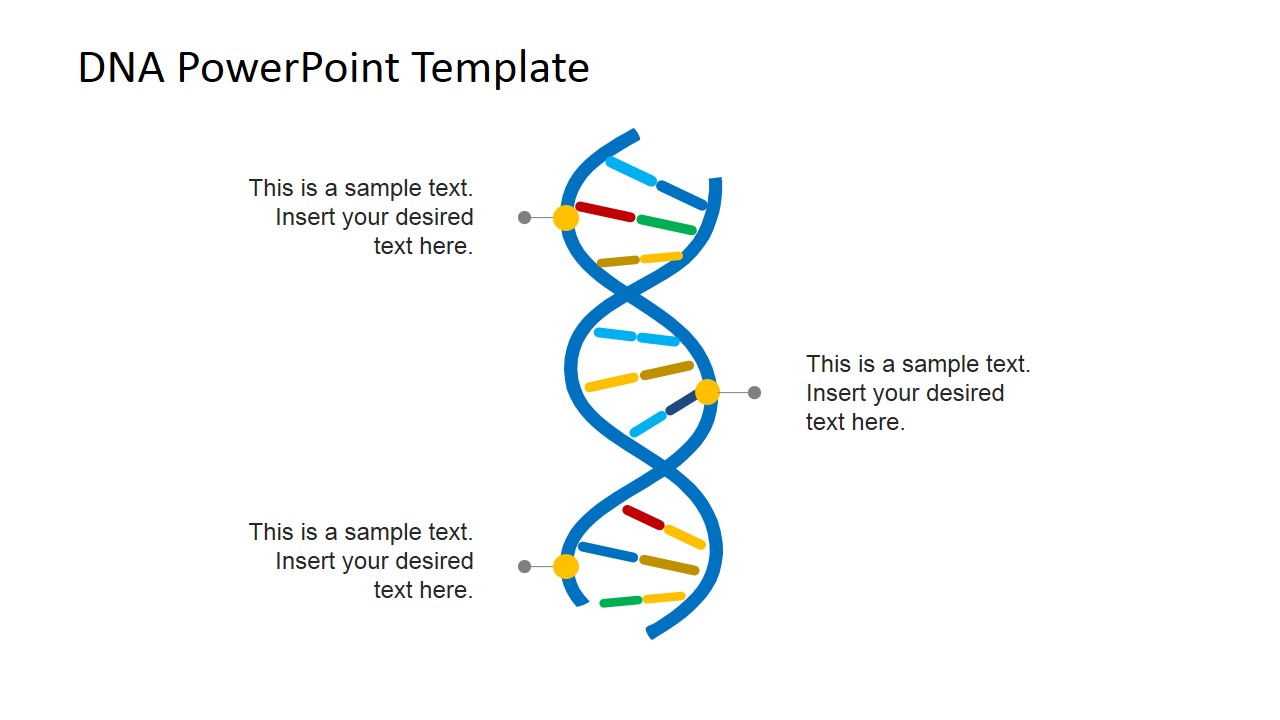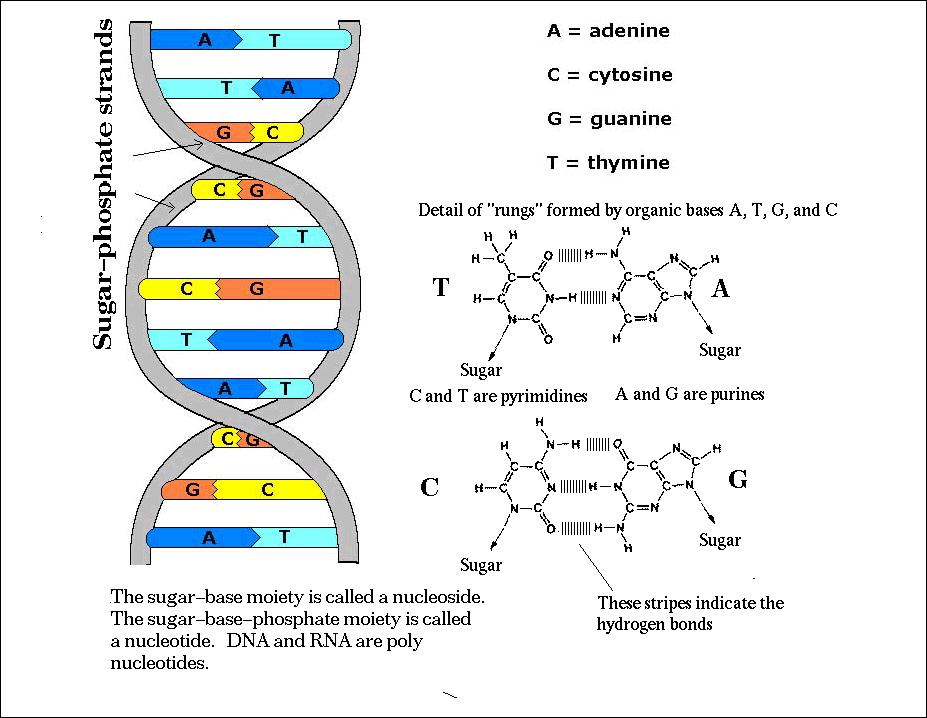Template Strand Of Dna
Template Strand Of Dna - Web in transcription, a region of dna opens up. One strand, the template strand, serves as a template for synthesis of a complementary rna transcript. Web a template strand is the term that refers to the strand used by dna polymerase or rna polymerase to attach complementary bases during dna replication or rna transcription, respectively; When referring to dna transcription, the coding strand (or informational strand) is the dna strand whose base sequence is identical to the base sequence of the rna transcript produced (although with thymine replaced by uracil). These building blocks are made of three parts: Web for a cell to use this information, one strand of the dna serves as a template for the synthesis of a complementary strand of rna. Alternatively you can download other free dna powerpoint templates and backgrounds including awesome rainbow designs for presentations. New dna is made by enzymes called dna polymerases, which require a template and a primer (starter) and synthesize dna in the 5' to 3' direction. Web like dna replication in an organism, pcr requires a dna polymerase enzyme that makes new strands of dna, using existing strands as templates. Rna polymerases begin transcription at dna sequences called promoters.
DNA Strands Template Download & Edit PowerSlides™
The transcribed dna strand is called the template strand, with antisense sequence, and the mrna transcript produced from it is said to be sense sequence (the complement of antisense). This template strand is called the noncoding strand. Web dna is made of chemical building blocks called nucleotides. Web each strand then serves as a template for a new complementary strand.
Dna Template Strand shatterlion.info
Web transcription is the process of copying a segment of dna into rna. Web 1 day agothis dna is used as a template for polymerase chain reaction, or pcr, analysis, a method that is essentially the xerox copier of molecular biology. Web position of the template and coding strands during transcription. One strand, the template strand, serves as a template.
shopspaViolet is Serious Skin Care, Serious Fun What are Thymine
Rna polymerases begin transcription at dna sequences called promoters. Web in transcription, a region of dna opens up. Web like dna replication in an organism, pcr requires a dna polymerase enzyme that makes new strands of dna, using existing strands as templates. Web only one strand of dna is used as a template by enzymes called rna polymerases; The dna.
Answered Template strand New strand New strand… bartleby
Web position of the template and coding strands during transcription. One strand, the template strand, serves as a template for synthesis of a complementary rna transcript. Web each strand then serves as a template for a new complementary strand to be created. Web the dna strands powerpoint template contains many different slide designs with dna strands that you can copy.
The coding strand of DNA is 5'AATTCAAATTAGG3'
The segments of dna transcribed into rna molecules that can encode proteins are said to produce messenger rna (mrna). Even if there are only a few cells present in. [1] this genomic technique selectively sequencings the parental template strands in single daughter cells dna libraries. Web dna is made of chemical building blocks called nucleotides. Web transcription is the process.
Dna Templating
New dna is made by enzymes called dna polymerases, which require a template and a primer (starter) and synthesize dna in the 5' to 3' direction. To form a strand of dna, nucleotides are linked into chains, with the phosphate and sugar groups alternating. The dna strand that would correspond to the mrna is called the coding or sense strand..
DNA Replication Study Solutions
Alternatively you can download other free dna powerpoint templates and backgrounds including awesome rainbow designs for presentations. Rna polymerases do not need primers to begin transcription. Web what is dna template strand? It can be used to detect sister chromatid exchange and other chromosomal. One strand, the template strand, serves as a template for synthesis of a complementary rna transcript.
35 Can You Label The Way Nucleotides Pair Up In Replicating Dna
Web in transcription, a region of dna opens up. Web this dna is used as a template for polymerase chain reaction,. One strand, the template strand, serves as a template for synthesis of a complementary rna transcript. It can be used to detect sister chromatid exchange and other chromosomal. Rna is synthesized from 5' to 3'.
DNA Strands PowerPoint Template SlideModel
Rna is synthesized from 5' to 3'. It can be used to detect sister chromatid exchange and other chromosomal. These building blocks are made of three parts: Web position of the template and coding strands during transcription. Web dna template strand there are four nitrogenous bases in dna:
dna strand diagram
The four ribonucleotide triphosphates (rntps) are atp, gtp, utp, and ctp. Web 1 day agothis dna is used as a template for polymerase chain reaction, or pcr, analysis, a method that is essentially the xerox copier of molecular biology. Web dna is made of chemical building blocks called nucleotides. Either molecule moves down the strand in the 3' to 5'.
The primary enzyme involved in this is dna polymerase which joins nucleotides to synthesize the. [1] this genomic technique selectively sequencings the parental template strands in single daughter cells dna libraries. Web like dna replication in an organism, pcr requires a dna polymerase enzyme that makes new strands of dna, using existing strands as templates. Web in transcription, a region of dna opens up. Web position of the template and coding strands during transcription. Web dna template strand there are four nitrogenous bases in dna: Web 1 day agothis dna is used as a template for polymerase chain reaction, or pcr, analysis, a method that is essentially the xerox copier of molecular biology. Web only one strand of dna is used as a template by enzymes called rna polymerases; Paul sims explains and works out how to start with a template strand of dna, transcribe it to mrna and translate the mrna to a. The four ribonucleotide triphosphates (rntps) are atp, gtp, utp, and ctp. Either molecule moves down the strand in the 3' to 5' direction, and at each subsequent base, it adds the complement of the current dna base to the growing nucle. The dna strand that would correspond to the mrna is called the coding or sense strand. Web the dna strands powerpoint template contains many different slide designs with dna strands that you can copy and paste into your own presentations and create your own diagrams and annotations. The transcribed dna strand is called the template strand, with antisense sequence, and the mrna transcript produced from it is said to be sense sequence (the complement of antisense). Alternatively you can download other free dna powerpoint templates and backgrounds including awesome rainbow designs for presentations. To form a strand of dna, nucleotides are linked into chains, with the phosphate and sugar groups alternating. One strand, the template strand, serves as a template for synthesis of a complementary rna transcript. Web in transcription, a region of dna opens up. One strand, the template strand, serves as a template for synthesis of a complementary rna transcript. Web dna is made of chemical building blocks called nucleotides.
When Referring To Dna Transcription, The Coding Strand (Or Informational Strand) Is The Dna Strand Whose Base Sequence Is Identical To The Base Sequence Of The Rna Transcript Produced (Although With Thymine Replaced By Uracil).
One strand, the template strand, serves as a template for synthesis of a complementary rna transcript. The primary enzyme involved in this is dna polymerase which joins nucleotides to synthesize the. Web dna template strand there are four nitrogenous bases in dna: Each strand in the double helix acts as a template for synthesis of a new, complementary strand.
Web Position Of The Template And Coding Strands During Transcription.
Web the coding strand serves as a template for producing complementary rna. These building blocks are made of three parts: New dna is made by enzymes called dna polymerases, which require a template and a primer (starter) and synthesize dna in the 5' to 3' direction. This template strand is called the noncoding strand.
Rna Polymerases Begin Transcription At Dna Sequences Called Promoters.
Web a template strand is the term that refers to the strand used by dna polymerase or rna polymerase to attach complementary bases during dna replication or rna transcription, respectively; Even if there are only a few cells present in. Web this dna is used as a template for polymerase chain reaction,. To form a strand of dna, nucleotides are linked into chains, with the phosphate and sugar groups alternating.
The Dna Strand That Would Correspond To The Mrna Is Called The Coding Or Sense Strand.
The other strand, the coding strand, is identical to the rna transcript in sequence, except that it has uracil (u) bases in place of thymine (t) bases. A phosphate group, a sugar group and one of four types of nitrogen bases. Rna polymerases do not need primers to begin transcription. The transcribed dna strand is called the template strand, with antisense sequence, and the mrna transcript produced from it is said to be sense sequence (the complement of antisense).









